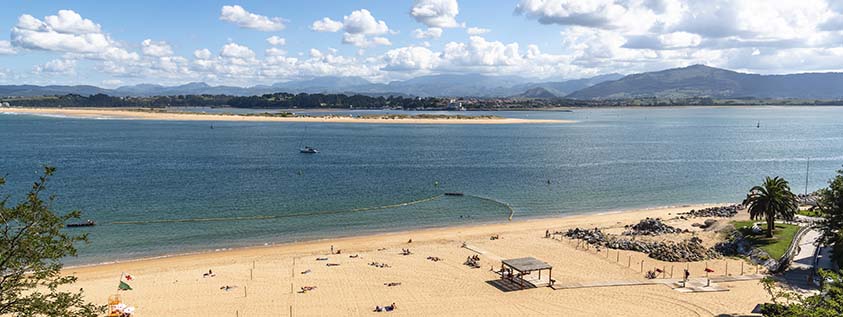Living In The Canary Islands: A Quick Guide To Applying For Residency
Living in the Canary Islands is a dream come true for many. With year-round sunshine, warm temperatures, and stunning beaches, what’s not to love? Located in the sunny Atlantic Ocean, just off Africa’s west coast, this magical Spanish archipelago has everything. Its stunning beaches and awe-inspiring volcanic landscapes will take your breath away. But before you pack your bags, you must ensure you have all your paperwork sorted out. In this quick guide, you’ll learn about the main requirements for applying for residency in the Canary Islands. Looking beyond the typical tourist attractions, this guide dives deeper into what Las Islas Canarias has to offer those interested in relocating.
Content
Living in the Canary Islands: What is it like?
The Spanish archipelago located off the northwest African coast has breathtaking Islands that are an ideal location for living and the perfect place to call home. Life on the islands is relaxed and easy-going and the living costs are much lower than in most other European countries.
There is a fantastic choice of European and local cuisine, plus a wide range of cultural activities. Shopping here can be varied and convenient too. There are bright bazaars close to popular tourist areas and plenty of supermarkets to stock up on essentials without venturing too far. The larger islands like Gran Canaria and Tenerife also have shopping malls for larger shopping trips.
Which Canary Island is the best to live in?
The best Canary Island to live in largely depends on personal preferences. Each of the main eight islands has something unique to offer: beautiful beaches, mountainous landscapes, vibrant cities, and remote villages.
Of the eight main islands, Tenerife and Gran Canaria are the two most popular ones. Gran Canaria is the third largest island in Spain. Tenerife and Gran Canaria are both famous for their year-round sunshine and lively culture. Meanwhile, La Palmas is also a great destination as it offers both city living and resort towns. It is the most metropolitan island with plenty of shopping opportunities. Fuerteventura offers a quieter, more relaxed atmosphere with its secluded beaches and lush forests.

Applying for residency in the Canary Islands
You must obtain a residency permit if you are looking for a long-term stay or remote work opportunity in the Canary Islands. You must apply if you are living or working there for more than 90 days. This guide will provide some insight into achieving legal residence status; however, it’s always best to get information from reliable and official sources for double assurance.
Obtain a Foreigner Identification Number
The NIE (Foreigner Identification Number) is an individual code the Spanish tax agency assigns to foreigners. This personal number appears on all issued and processed documents except for visas, including passports and identity cards. It serves as a form of identification for individuals when dealing with governmental institutions in Spain.
If you want your NIE, providing evidence of where you live such as a rental agreement or hotel/hostel booking receipt, is essential. This number is needed for many tasks like paying taxes and fees, owning property, acquiring a driving license, or starting a company – all activities that require finance transactions.
Work for a local/national company
European citizens with a legitimate job contract from a regional/countrywide organization do not need to meet other stipulations. The agreement must be formalized, and include at least 20 hours of labor per week. However, it does not necessarily need to encompass full-time employment. The European Union has a number of regulations and directives that regulate working conditions; your employer must adhere to current legislation and register the job contract with social security services.
Have private health insurance
Private medical cover is a requirement for those living in the Canary Islands for more than 90 days. Obtaining comprehensive health coverage ensures access to high-quality healthcare services, both public and private, throughout the region. In most cases, your employer will likely cover this cost; however, if you are a self-employed worker or freelancer living in Spain, it is essential to obtain your own policy.
Apply for a student visa
If you are planning on studying in the Canary Islands, then, of course, you will need a student visa. To apply, you must submit proof of enrollment at the respective educational institution and all documentation proving financial stability and health insurance.

What happens if you work for a non-local/national company?
If you’re an EU, EEA, or Swiss national who a local or national company doesn’t employ, has no work contract with one, and works for a foreign business instead – it is essential to demonstrate that you have enough income to sustain living on the islands. Moreover, private health insurance is also required in such cases.
What happens if you are a non-EU citizen?
Non-EU/EEA and Swiss citizens must visit the Oficina de Extranjería (Immigration Office) to fill out an application for a residency permit. Additionally, they should demonstrate that their stay on the Islands is financially viable by providing evidence of sufficient financial resources.
A word from SpainDesk
The Canary Islands are the perfect destination for career switchers pursuing a more relaxed, beach-centric lifestyle. Applying for residency in the Canaries is easy, with many options available. To gain full access to all the benefits of living in the Canaries, you will need to apply for a resident permit for at least six months before moving there. Some key application requirements include a valid passport or ID card, proof of address, health insurance, and documents that reflect your income sources. Once approved, you can stay in the islands indefinitely, provided that you meet all of the legal requirements associated with your resident permits, such as residence taxes and mandatory medical exams. Keeping in mind these steps, you’ll be ready to enjoy life in this beautiful part of the world!

